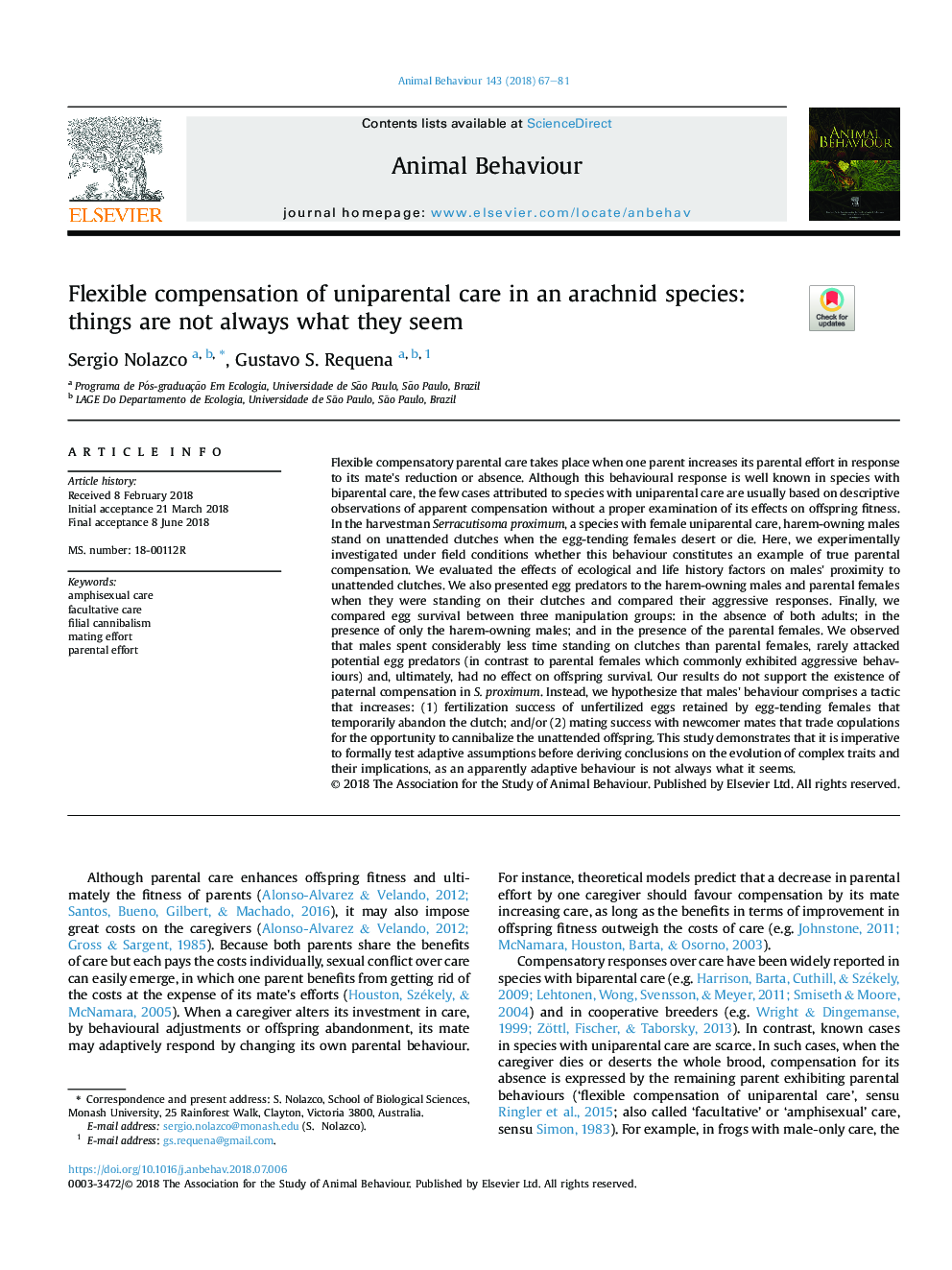| Article ID | Journal | Published Year | Pages | File Type |
|---|---|---|---|---|
| 8488393 | Animal Behaviour | 2018 | 15 Pages |
Abstract
Flexible compensatory parental care takes place when one parent increases its parental effort in response to its mate's reduction or absence. Although this behavioural response is well known in species with biparental care, the few cases attributed to species with uniparental care are usually based on descriptive observations of apparent compensation without a proper examination of its effects on offspring fitness. In the harvestman Serracutisoma proximum, a species with female uniparental care, harem-owning males stand on unattended clutches when the egg-tending females desert or die. Here, we experimentally investigated under field conditions whether this behaviour constitutes an example of true parental compensation. We evaluated the effects of ecological and life history factors on males' proximity to unattended clutches. We also presented egg predators to the harem-owning males and parental females when they were standing on their clutches and compared their aggressive responses. Finally, we compared egg survival between three manipulation groups: in the absence of both adults; in the presence of only the harem-owning males; and in the presence of the parental females. We observed that males spent considerably less time standing on clutches than parental females, rarely attacked potential egg predators (in contrast to parental females which commonly exhibited aggressive behaviours) and, ultimately, had no effect on offspring survival. Our results do not support the existence of paternal compensation in S. proximum. Instead, we hypothesize that males' behaviour comprises a tactic that increases: (1) fertilization success of unfertilized eggs retained by egg-tending females that temporarily abandon the clutch; and/or (2) mating success with newcomer mates that trade copulations for the opportunity to cannibalize the unattended offspring. This study demonstrates that it is imperative to formally test adaptive assumptions before deriving conclusions on the evolution of complex traits and their implications, as an apparently adaptive behaviour is not always what it seems.
Related Topics
Life Sciences
Agricultural and Biological Sciences
Animal Science and Zoology
Authors
Sergio Nolazco, Gustavo S. Requena,
